Otura Meyi (Òtúrá Méjì): Meaning, Analysis and Tips
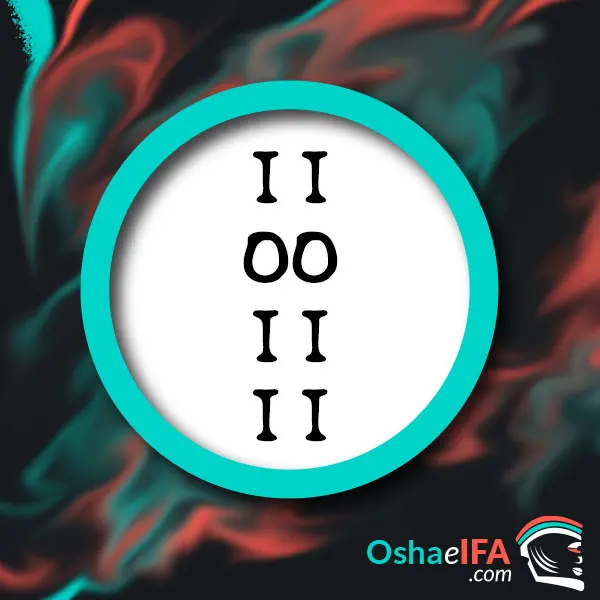
Otura Meyi (Òtúrá Méjì), the Odu of greetings and bows, symbolizes wisdom and is the closest to Olodumare. However, his caprice and pride led him to lose his way, becoming a figure that provokes rejection. The children of this Ifá tend to be capricious, proud, cunning and violent due to their strong character, which makes them lose their own path. In addition, they usually have the defect of talking excessively.
Analysis and Advice of the Odu Ifá Otura Meyi
Otura Meyi is known to be an Odu that marks situations of betrayal and significant challenges, symbolized by the Supper of Christ. This highlights the importance of always being alert and prepared to perform Ebó, cleansing rituals and offerings, particularly to the Earth, to counteract negative energies and spiritual abandonment. This sign emphasizes the need to stay away from greed and excessive ambition, and advises avoiding being a messenger or intermediary, since the divine grace granted is personal and non-transferable.
Persons governed by the sign of Ifá Òtúrá Méjì must take precautions against theft and loss, making offerings to Egun to protect themselves. In addition, they are urged not to make excessive physical efforts, since this Odu warns of the risk of serious problems such as massive heart attacks. He also advises that he should not serve as a messenger or give messages, as it reinforces the idea of preserving his own energy and resources for his personal and spiritual well-being.
“What you want, if it is true, is never abandoned” Òtúrá Méjì emphasizes the durability of genuine love and authentic desires. When the heart is truly committed, no obstacle or time can wear down that devotion.
Economic Aspects
Otura Meyi is characterized as an Odu of success in business, especially in buying and selling activities. Prosperity in this sign depends significantly on the ability to remain calm and sane in the face of adversity. His followers are advised to make offerings to Eshu to ensure protection against betrayal and obstacles on the entrepreneurial path. However, he is warned against overusing divination for personal gain, as death could come between the individual and his goals.
“Wealth and abundance will not be able to blind me” Otura Meyi emphasizes the importance of maintaining humility and perspective. Material possessions should not divert people from their integrity or their deeper purpose, reminding us that one's true value lies not in what he has, but in who he is.
Health Aspects
In terms of health, this Odu warns about the importance of taking care of the nervous system and avoiding excessive stress that can lead to serious illnesses such as massive heart attacks. In addition, specific diseases such as leprosy and chickenpox are mentioned, suggesting particular care for the skin and the immune system. Followers of Otura Meyi should avoid risky behaviors that compromise their physical and mental well-being.
Òsìkí, the priest of the council,
He made divination for the leader who was returning from the trip to Ifé.
He was asked to make a sacrifice, and he obeyed.
Òsìkí knows that if he blocks the path of the council priest,
In Ifé they will not allow you to have a bad trip.
Ifá says that there are blessings of long life for you, but you must offer sacrifice so as not to have problems in life that could even cost you death. Ifá says that you must obey and take seriously the advice it gives you.
Religious Aspects
Otura Meyi is a sign that demands deep respect for the Orishas and a constant practice of rituals to maintain a solid spiritual connection. Receiving Olokun and Oduduwa strengthens spirituality and the connection with the divinities, with offerings and sacrifices being essential to avoid misfortunes and maintain balance in the lives of their followers.
This Odu represents the duality between good and evil. Initially, Otura Meyi came to Earth obedient and following the path of good, known as “IFA IMALE”. However, his desire for wisdom led him to self-destruction, separating himself from the gift of sixth sense and falling into evil. Therefore, the children of this Odu are advised not to follow the Osobo of this Ifá, which represents the path of evil.
The sun passes successfully.
The wind travels successfully until it disappears.
They performed divination for Otugberi, who was walking without any purpose.
My pain and suffering went beyond normal.
That's why we come running to you, Ikin.
Ifá says that you should always approach Ifá, since he will get you out of the difficulties you find yourself in. Ifá says to always go to him before falling into bigger problems and be receptive to his advice and commandments.
Personal Relationships (Love):
In the area of love and personal relationships, this Odu predicts that its followers tend to be capricious and proud, which can lead to conflicts in intimate relationships. The key to a successful love life under this sign is honest communication and moderation in expressions of character. Work must be done to prevent pride and arrogance from affecting relationships with loved ones. Loyalty and mutual respect are essential to maintaining lasting harmony in relationships.
"You only have the happiness that we have given" reminds us that the love and happiness we give to others are reflected in ourselves. True joy comes from shared generosity and affection, and in the act of giving, we find the richness of lasting satisfaction.
General Description of the Odu Òtúrá Méjì
The Odu of Ifá Otura Meyi is a window to the essence of humanity, showing the complexities and dualities that define us. It is the origin of numerous fundamental aspects of human existence, from intelligence and social relationships to the challenges and difficulties we face. It reflects humanity's journey over time, marked by the search for wisdom, the confrontation of adversities and the desire for growth. This Odu reveals the history and destiny of human beings, in their constant effort to understand the meaning of life and their place in the universe.
What is born in the Odu of Ifá Otura Meyi?
- The human race.
- The blindness.
- Begging.
- Equality.
- The paternity.
- Artillery.
- The rifle.
- Knowledge and the ability to capture intelligence through brain neurons.
- Songbirds.
- Legumes.
- The mameyes.
- He stopped.
- Mastoiditis and parasympathetic.
- El Apó (the Awó travel bag).
- The drug addicts.
- The noise or roar of the sea.
- Dressing up humans.
- The squirrel and the lead.
- The coup in antiquity.
- The Nangareo in the Yoruba land.
- The disputes.
- The secrets of the roots and branches of trees.
- Primitive civilizations.
What does the Otura Meyi sign talk about?
- The dead worked at night.
- Mark neglect and neglect.
- People were wandering aimlessly.
- Otura Meyi marks the passage of humanity through the earth.
- Man dominated all animals.
- The body walks without a soul.
- Orúnmila was persecuted.
- Here: The whites had Ifa before the blacks.
- Olofin went out for a walk and the hill closed it.
The Otura Meyi sign points out:
- It was the supper of Christ.
- He began to look on the mat.
- It was guessed for peanuts.
- It was divined in heaven for Baba Imalé.
- The road to wealth was opened.
- In Otura Meyi it was guessed for the white man.
- It was guessed for truth and falsehood.
Recommendations:
- Receive Olokun and Oduduwa.
- Have patience to govern and obtain what you want.
- Be grateful for the good received and do not forget those who helped.
- Offer sacrifices to avoid difficulties and obstacles.
- Sacrifice a rooster to Egun, pounded yam, brandy and palm oil to start a new agricultural enterprise.
- Sacrifice a goat to Eshu frequently.
- Sacrifice four chickens, four roosters, four doves and four snails in a cave to multiply on earth and dedicate yourself to the practice of Ifá.
Prohibitions:
- Do not eat rabbit, rooster, tortoise, turtle, roasted corn, yam, pork, crab, octopus, pork ham or chicken.
- Do not smoke or drink alcoholic beverages.
- Do not dye your hair and women do not cut it.
- Don't be a bully.
- Do not wear scratched clothes.
You may also like: Treaty of the sign of Ifa Osa Meyi
Sayings of the Odu of Ifa Otura Meji:
- If you give to save, to ask you stay.
- You should not live in need when you share the house of an Ifá priest.
- Wealth and abundance will not be able to blind me.
- An Ifá priest should not be kicked out of the house.
- Between Heaven and Earth there are cords that cannot be stared at.
- Childhood is different from old age.
- Drinking is the cause of my discouragement.
- What is wanted, if it is true, is never abandoned.
- The beak that the bird uses to eat serves to make its nest.
- The Sun cannot catch the Moon.
- The world is a strange land; heaven is home.
- You only have the happiness that we have given.
- An Arab does not worship another Arab.
- He who works with indigo paints his clothes.
- Olodumare is very big.
- Remove the parrot's tail feathers and they grow back.
- It's late, they aren't looking, they don't believe in us.
- Man is the king of the animals.
- Don't flaunt your merits.
- Among your friends and family there are envious people.
«Remove the parrot's tail feathers and they grow back.» suggests the resilience inherent in life. Losses and adversities can temporarily strip us of our qualities, but like the parrot's feathers, with time and patience, we can be reborn, recovering our essence and inner strength.
Ethical code:
- With respect and the mind, the enemy is defeated.
Meaning of the Ifá Sign Otura Meyi
This Odu symbolizes peace of mind and freedom from anxiety. The children of this Ifá are usually gentle and moderate in their character. It is an Odu associated with success in business, especially in commerce. It is essential to placate Eshu regularly, as they may face betrayals.
Followers of this Odu must learn to manage their time to rest and avoid activities that lead to physical or mental exhaustion.
Ifá warns those who have this sign that they may have many enemies, which could lead them to poverty, loneliness and family disconnection. It is recommended to make sacrifices to Ogun, Yemayá and Ifá as soon as possible to overcome your enemies and thus find family stability.
This Odu symbolizes the cyclical movement of life, reflected in the exchange between Heaven and Earth, and the oscillation between day and night. Shango, in his divine role, draws the line between these realms, defining the destiny of each soul.
Òtúrá Méjì, is a male Odu, son of Añashé and Tené. His day is Akoke (Thursday), his ruling planet is Erin (Jupiter), his metal is pewter and his color of clothing is red. He symbolizes rebirth, and reflects the dual nature of existence, with captivity on Earth and happiness in Ará-Onú (Heaven).
This sign warns that those under its influence may talk too much, which can bring them enemies and problems. Here the human races, blindness, begging, equality, fraternity, artillery, the rifle and many other characteristics of the human being are born.
The main colors of Otura Meyi are blue and white, and a white cap with a yellow sun in the center must be worn. The Orishas who speak in this Odu are Eshu, Oduduwa, Obatalá Ayalguna, Shango, the Ibeji, Oya, Ogun, Olodumare, Olokun, Ala Baba Imole Egun, Iku and Orishaoko.
Here the Apó, the bag that the Awos use to travel, originated, and the Nangareo was also born, which is carried out before performing an Itá.
Nangareo: Shango discovered Nangareo in Otura Meyi, in the Imalé land, and introduced it into the Yoruba religion through Odu Odi Meji. This ritual involves paying homage to the supreme deities of the Universe. Among these deities is Egun, and that is why on that day Obi Omi Tuto is not offered to him, since he is realizing it. The Nangareo is performed whenever there is an Itá, offering Obi Omi Tuto.
Says Ifa Otura Meyi:
According to the Ifá sign Otura Meyi, the worst enemies are your tongue and alcohol. Pride and whim can also cause problems, as these people have a belief that what they say is the absolute truth. They like to lead and have things done their way, which can cause problems in their marriages, since they believe that no one conforms to their ways.
When this sign appears in ókpele divination or during the descent of Orúnmila, the person is advised to maintain a lot of patience to get to the bottom of their objectives.
To ensure prosperity, Otura Meyi advises performing Ifá and sacrificing a rooster, white cloth, several types of grains, a bearing, two jicoteas and a bundle of firewood. He also recommends sacrificing a ram to his Ifá, a goat to Eshu and preparing a trap so that his children can protect themselves from any threat from their brothers. You shouldn't eat peanuts here.
When Òtúrá Méjì appears in the Igbodun, the shrine of Eshu must be quickly prepared and a goat sacrificed to him. The initiate should not consume more alcohol, as this could cause him to become impotent. He must also be warned that the financial problems he has faced are due to his failure to offer sacrifices to Shango. He must offer a goat to Eshu, along with a rooster, a chain and a machete to protect his home from an imminent threat of war.
It is essential, according to Otura Meyi, to always tell the truth, even if it is slow and weak, because in the end it will always triumph. To obtain wealth, it is necessary to sacrifice a rooster, a machete, clothes, a bearing, a bundle of firewood, two jicoteas, a goat to Eshu and offer food to Olokun.
To avoid losing money on a trip, you must sacrifice a machete, a jicotea, and a stake. In an ordinary consultation, the consulted is advised to offer his ancestors pounded yam and a rooster to Eshu.
When Òtúrá Méjì appears to a woman, she must be warned that curiosity could lead to her death. She must offer a clay pot, white cloth and two white chickens in sacrifice in the center of the forest.
Treaty of the Odu of Ifá Otura Meji
In this Odu, the tribe of the Allah-Imolé did not believe in the Saints, but rather worshiped the Sun (Olorun), the Earth (Aiyé) and Egun (their deceased). Here the secrets of the roots and branches of trees were revealed, and primitive civilizations also emerged, marking the passage of humanity on Earth.
Otura Meji is the Odu where knowledge and intelligence captured through brain neurons was born, and where man dominated the animals, earning the name "Father of Life." Furthermore, this Ifá indicates that Obatalá never leaves his children without food.
The person under the influence of this Odu is not spared from death, and if it is due to disobedience, it will come faster. Here, the body walks without a soul, but Shango can save the person if he swears to do so. Otura Meji points out the purity of women, as well as the anger of men and the sacrifice of living among wild beasts. The Odu warns of travel gains, but also of death from illness.
The children of this Ifá tend to be distrustful and do not trust anyone. The sign portends difficulties and obstacles. In one of the Odu stories, Obatalá went out for a walk and the hill blocked his way. Orúnmila made Ebó and freed him from that difficulty. Therefore, in this Odu it is important to perform Ebó to open the paths. Here, Eshu is represented with two blades, symbolizing two fortunes that belong to him.
Otura Meji suggests that one should not practice religion in the company of others, as conflicts of competence could arise. He also forbids keeping monkeys in the house. Orúnmila was persecuted by his enemies in this Odu, and in it, the whites had Ifá before the blacks, who lost it after a war.
It is recommended to feed the roof of the house (Babawa) with a Sara-Ekó gourd, husk and prodigious grass, covered with red cloth, which must be discarded after seven days. Here, the person could find a fortune, but this can lead to legal problems that make him look like a thief. It is crucial to guard against theft and not keep other people's belongings at home to avoid legal problems. It is also prohibited to put your hands on your head and you must be careful with fire.
Shango is considered a true father in this Odu, and disobedience is punishable by death. You must receive Orishaoko. The Ifá of the Awó Otura Meji has eight stones in each hand, for a total of 16 stones. The Awó with this sign should not do Ifá to white men.
This Ifá also tells how Orúnmila caught Imalé when he was coming down from heaven by a chain to steal. What she could not take or eat, she destroyed, and then returned to heaven by the same chain.
Prayer of the Odu Baba Otura Meji:
BABA OTURA MEJI IFA NI IPAKO AWO NI IPAKO ADIFAFUN LALA SALA MALEKUN
MALEKUN SALA OLORUN NANGARE INA TUTO FELEYO OSARA OLORUN ARERE ARERE INA
TUTU KAKAFENA MOFOYU OBA NI IPAKO KEKE NI IPAKO ADIFAFUN IMALE.
Suggest:
"ALALADE IFA WA TIWA IMALE
ALALADE IFA WA TIWA IMALE AWO ”.
Verse of the Odu Òtúrá Méjì
Ajenje ní règún orogbo ní dè.
He made divination for Orúnmìlà.
When the father came from heaven to earth.
They told him to make sacrifice and he obeyed.
I will receive my blessings of wealth before I return.
Egboro ni dé, Ajenje ni règùn, ogboro ni idé.
I will receive my wifely blessings before I return.
Egboro ni dé, Ajenje ni règùn, ogboro ni idé.
I will receive my child blessings before I return.
Egboro ni dé, Ajenje ni règùn, ogboro ni idé.
I will receive my blessings to have strong horses before I return.
Egboro ni dé, Ajenje ni règùn, ogboro ni idé.
I will receive my blessings to have houses before I return.
Egboro ni dé, Ajenje ni règùn, ogboro ni idé.
Not for a long time,
Come see how we enjoy many blessings.
Ifá says that you have been blessed from heaven to have all those things in life that you most want, such as houses, money, wives, children, work, etc. Ifá says that you must be very attached to him and be a grateful person for the favors you receive.
You may also like: Odi Meyi, Odu of Ifa.
Ebboses (Works) of the Odu of Ifa Otura Meyi:
Work by Otura Meji to change the head of a sick person:
Materials: Husk, a white handkerchief, the person's hair, a piece of white cloth, two white chickens, six snails (dilogunes), a mud ball and money.
Process:
- Mold the mud ball into the shape of a human head (man, woman or child, as the case may be).
- Place the hair and the 6 snails, representing the eyes, nose, mouth and ears.
- Place the figure on the white cloth and sacrifice the two white chickens by invoking Opariko.
- Cover the figure with the chicken feathers and wrap it with the white fabric, securing the four corners on top.
- Draw Otura Meji on a wooden tablet and cover it with husk. Place the tablet under the head of the sick person's bed for the days indicated by Ifá.
- Roast the chickens' bodies and take them to the cemetery.
Ebbo to resolve situations:
- Place a gourd with Sara-Ekó for Eshu, another for Shango and one more behind the main door.
- Take a clay pot, open 9 holes, paint it white (with husk) and place 7 stones, 7 heads (ask what they are), a hand of ikinis, and plant a ceiba plant.
- At the foot of a banana plant, place a machete and beef. He calls the Eguns (spiritual guides and deceased relatives) and offers them 3 doves.
- Place Shango in the center of the patio and offer him a toy and a rooster.
- Take another jicotea, put chicken foot grass in its mouth and atiponlá. First, insert a stick into her mouth to make her angry and thus release her ashé. With that, set up an Inshé-Osanyin.
You may also like: Treatise of Irete Meyi
Otura Meyi Ifa Traditional Nigerian
ÒTÚRÁ MÉJÌ
Ajósíkí Awo Ìmònràn
A day fún Òrúnmìlà
Ifá or jolórí abomolè nífè
Wón ní ó saca káalè ó jàre
Ebo did not know
Òrúnmìlà gbébo nbè
Ó rubo
Ajòsíkí mòmò give ò
Awo Ìmònran
Òrúnmìlà ló je Olórí abomolè nífè.
Ifá wants this person to be well. He will become a recognized person. He will also become a leader of some place.
Ajósíkí Awo Ìmònràn
He made divination for Òrúnmìlà
When únrúnmìlà would become the leader of the group of ritual observers in Ifè
They advised him to take care of the earth
And make the sacrifice
Òrúnmìlà heard about the sacrifice
And he did it
Ajòsíkí is here
The Priest of Knowledge
Òrúnmìlà became the leader of the group of ritual observers in Ifè.
Patakies (stories) of the Ifa sign Otura Meyi:
The Origin of the Coup against Antiquity
Otura Meji narrates how youth and old age had different types of authority. Traditionally, old age was a symbol of wisdom and authority, and younger people could not intervene when older people conversed.
This Odu shows how tradition changed to allow young people to challenge the position and influence of elders. The story goes that when youth and old age sought power and authority from Olodumare, they consulted three Ifá priests named Otin Lotin Ejo, Obilobi uwa Emulemu ara jonjo, and Loon adifafun omode Ipako.
The priests advised both to make an offering before returning to heaven. When they arrived, Olodumare asked them to return after seven days with two hundred and one deer each. This happened before Eshu closed the route between heaven and earth. The elders gathered the two hundred and one deer easily, but the young man could only gather fifty.
On the indicated day, both began their journey separately. The young man caught up with the old man on the road and offered to help him carry his pack of deer. Gratefully, the old man accepted. However, the young man mentioned that he could not advance so slowly, so he went ahead, promising to wait for the old man ahead. Near the entrance to heaven, the young man tied his fifty deer with those of the old man in a single bundle and took it to the Divine Palace of Olodumare.
There he handed over the two hundred and fifty-one deer, claiming that they were all his. However, Olodumare asked him to wait for the old man's arrival. When the old man finally arrived, he thanked the young man for helping him carry the package, but upon asking for his share, the young man denied it and claimed that everything belonged to him. He even accused the old man of trying to rob him. Olodumare asked how many deer each had brought. The young man said that he had brought all two hundred and fifty one deer and snails, so Olodumare granted him power and authority.
This story shows why, to this day, young people can assume power from their elders in various human communities. Before, to aspire to a position of power you had to be an older adult. However, today, young people have the opportunity to participate in government because they take power from their elders.
This is not the situation in heaven, where the elders still maintain hegemony.
Explanation: This patakie teaches us the importance of honesty and integrity. The young man acted dishonestly to gain power, demonstrating that the desire for dominance can lead to selfish acts. He also shows us that authority does not always come with wisdom. When Òtúrá Méjì appears in the consultation, it is advisable to advise the person that if they travel, not allow anyone to carry their luggage to avoid losing it.
The Three Bottle Test
Three men went to Orúnmila's house and, after a consultation, the Odu was revealed to them, which indicated that they should perform an Ebó to obtain charges without losing their validity. After Ebó, Orúnmila buried the pig, placed the ram in a box and covered it. Then, she filled three bottles with a liquid and sealed them. She gave each man the box and a bottle, telling them that they had to pass through three different lands without opening the bottles, since they had to deliver them to Olofin.
These three men were of different races: one white, one black, and one Chinese. They began their journey with the Ebó. The white man had the black man carry the box and the Chinese man help him. He stood behind with the three bottles.
It wasn't long before the black man got tired and left the crate in the middle of the road. The Chinese man refused to carry it alone, so the white man helped him, and the black man then took the three bottles.
When there was only one land left to reach Olofin's house, the black man opened one of the bottles and drank. Seeing him, the Chinese man did the same. The white man warned them that Orúnmila had forbidden them to open the bottles and that he would not do it.
Finally, they arrived at Olofin's house, where they were received by Eshu Onibode Ayalonu, who took the Ebó to Olofin. However, shortly after, Onibode Ayalonu was called and informed that the Ebó was not complete, and that they would be punished for not following the instructions.
The three men were put at the end of the line to see Olofin. The white man protested, claiming that he had not drunk from the bottle and that he had helped carry the heavy crate. Onibode responded: "You became the leader of the group, and although you did not drink from the bottle, you allowed the others to do so, so the Ebó did not reach heaven completely."
Explanation: History shows us the importance of shared responsibility. Even if we do not directly participate in a bad action, being a leader means taking responsibility for the group's decisions. It's a reminder that allowing others to break the rules can also have consequences for ourselves.
The Crab and its Head
Once upon a time there was a man who had no head, but he was skilled with his hands, which allowed him to take possession of everything. The crab, who was good, noble and unfortunately overconfident, was a friend of the headless man. One day, the crab lent him his head to help his friend, since Olodumare had invited everyone to the house on the hill (Oke) to discuss who would be capable of running the Earth.
The man got along very well with the head that the crab lent him. He observed, looked around him and spoke with such eloquence that Olodumare did not doubt his intelligence and named him leader on Earth.
The crab, who had not attended the meeting, was waiting impatiently for his friend at the exit of the hill. Seeing him, the man asked him in an authoritative tone: "What are you doing here?" The crab replied, "I'm waiting for you to give me back my head." The man, with a firm voice, answered: "Know that I have decided to keep the head." The crab replied: “You don't need to stay with her; Whenever you need it, I will lend it to you. Give it back to me, because tonight I need it.
“You must know,” said the man, “that I need it more than you, since today I was made leader of the entire Earth. So accept your headless fate and don't bother me anymore.
The crab, annoyed, protested, but since it had no direction, it wandered aimlessly, while the man, with the manatee whip that Olodumare had given him as an attribute of his position, made it sound, threatening to destroy it if it bothered him again.
The crab did not expect such a cruel betrayal, but the man threatened and frightened him with the whip, forcing him to flee. As the crab rolled down the hill, two small stones formed in the place where his head was and became his eyes.
This is how the crab lost its head, because the man, with his selfishness, took it from him.
Explanation: The pataki of the crab and its head show us how trust and nobility can be exploited by those who are selfish and manipulative. He teaches that we should not always blindly trust others and that power can corrupt people, leading them to forget about generosity and respect for those who helped them.
You can learn everything about the 16 Mejis:
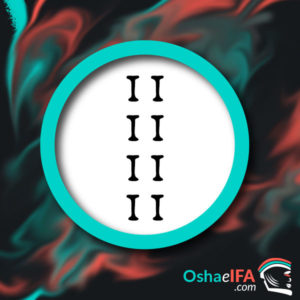




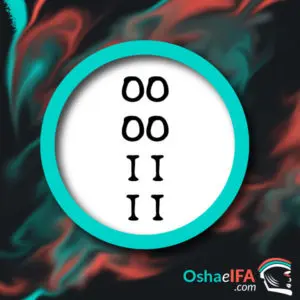
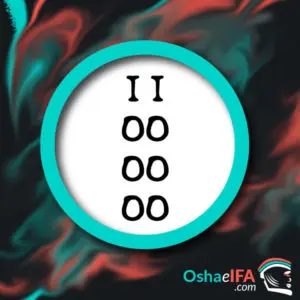
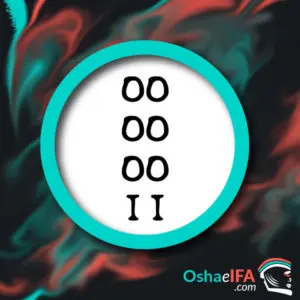
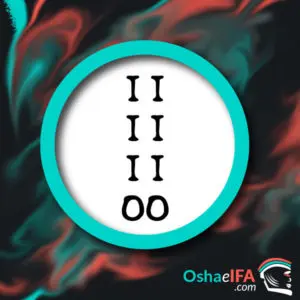
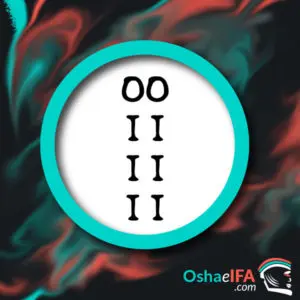
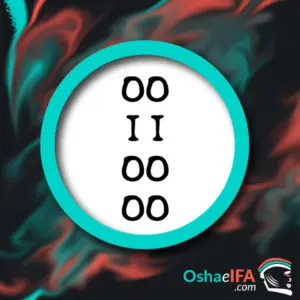
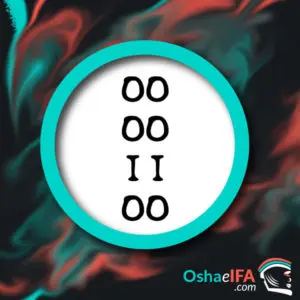
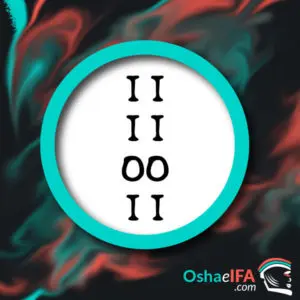
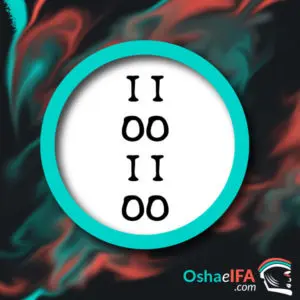
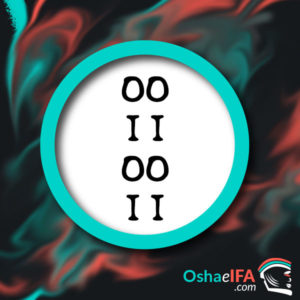
Thank you so much for your efforts in educating us in this field. I'm very much interested in knowing more under your able guidance, please.
Thank you for this detailed education; Otura meji. Now we know what to do and what to abstain from.
Iys A Divine Expressions of deep thought while reading A Trace As A service to humanity